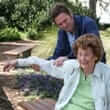Background
- Applied Kinesiology (AK) is a technique that uses muscle testing with the aim to diagnose nutritional deficiencies and health problems. It is based on the concept that weakness in certain muscles corresponds to specific disease states or body imbalances. AK practitioners may diagnose organ dysfunction, energy blockage, or allergies (including those to foods and drugs). Edukinesthesia is a type of AK that is used to detect the cause of learning difficulties and poor concentration.
- Some AK practitioners assert that this technique can be used to treat conditions by rectifying imbalances in the body.
- AK was developed in the 1960s by George Goodheart Jr., a chiropractor who asserted that postural distortions can be associated with weak muscles. He suggested that with his assessment technique, interventions could be identified and tested based on their ability to make muscles stronger and change postural distortions. Currently, AK may be practiced by chiropractors, naturopaths, medical doctors, dentists, nutritionists, physical therapists, massage therapists, nurse practitioners, or other providers. The International College of Applied Kinesiology (ICAK), founded in the 1970s, has established standards of practice for this form of assessment based on the work of Goodheart.
- There is limited scientific research on Applied Kinesiology, and published studies have not established specific links between muscle responses and diseases affecting the organs. Applied Kinesiology is not recommended as a sole diagnostic tool in cases when other tests have been shown to be effective. If Applied Kinesiology is used alone, there may be a risk that disease will remain undetected and untreated.
References
- Bull L. Sunflower therapy for children with specific learning difficulties (dyslexia): a randomised, controlled trial. Complement Ther Clin Pract 2007;13(1):15-24.
View Abstract - Caruso W, Leisman G. The clinical utility of force/displacement analysis of muscle testing in applied kinesiology. Int J Neurosci 2001;106(3-4):147-157.
View Abstract - Caso Ml. Evaluation of Chapman's neurolymphatic reflexes via applied kinesiology: a case report of low back pain and congenital intestinal abnormality. J Manipulative Physiol Ther 2004; 27(1):66.
View Abstract - Dunk NM, Chung YY, Comptom DS, et al. The reliability of quantifying upright standing postures as a baseline diagnostic clinical tool. J Manipulative Physiol Ther 2004;27(2):91-96.
View Abstract - Gin RH, Green BN. George Goodheart, Jr., D.C., and a history of applied kinesiology. J Manipulative Physiol Ther 1997;20(5):331-337.
View Abstract - Gregory WM, Mills SP, Hamed HH, et al. Applied kinesiology for treatment of women with mastalgia. Breast 2001; 10(1):15-19.
View Abstract - Haas M, Peterson D, Hoyer D, Ross G. Muscle testing response to provocative vertebral challenge and spinal manipulation: a randomized controlled trial of construct validity. J Manipulative Physiol Ther 1994; 17(3):141-148.
View Abstract - Lawson A, Calderon L. Interexaminer agreement for applied kinesiology manual muscle testing. Percept Mot Skills 1997 Apr;84(2):539-46.
View Abstract - Ludtke R, Kunz B, Seeber N, et al. Test-retest reliability and validity of the Kinesiology muscle test. Complement Ther Med 2001; 9(3):141-145.
View Abstract - Ludtke R, Seeber N, Kunz B, et al. Health kinesiology is neither reliable nor valid. Focus Alt Compl Ther 2000;5:95.
- Moncayo R, Moncayo H, Ulmer H, et al. New diagnostic and therapeutic approach to thyroid-associated orbitopathy based on applied kinesiology and homeopathic therapy. J Altern Complement Med 2004;10(4):643-650.
View Abstract - Staehle HJ, Koch MJ, Pioch T. Double-blind study on materials testing with applied kinesiology. J Dent Res 2005;84(11):1066-1069.
View Abstract - Sudsawad P, Trombly CA, Henderson A, et al. Testing the effect of kinesthetic training on handwriting performances in first-grade students. Am J Occup Ther 2002; 56(1):26-33.
View Abstract - Tashiro MT, Orlandi R, Martins RC, et al. New therapeutic trends in nursing-natural therapies-assistance programs. Rev Bras Enfrm 2001;54(4);658-667.
View Abstract - Teuber SS, Porch-Curren C. Unproved diagnostic and therapeutic approaches to food allergy and intolerance. Curr Opin Allergy Clin Immunol 2003;3(3):217-221.
View Abstract







